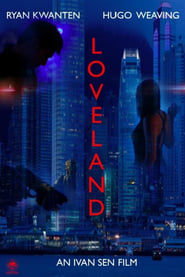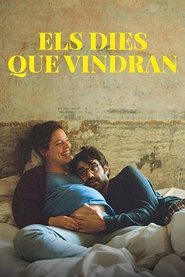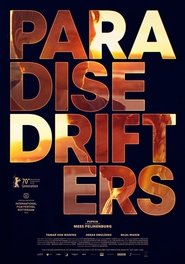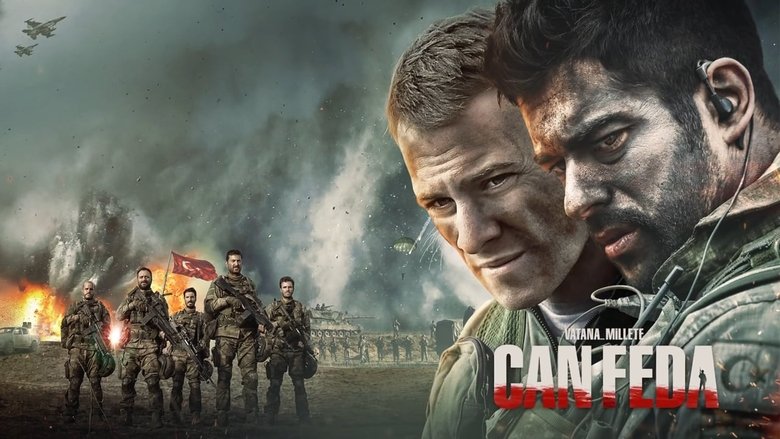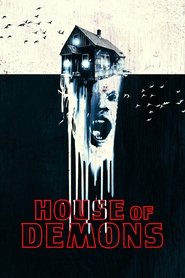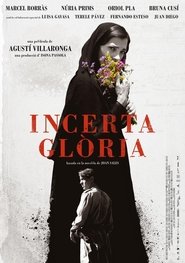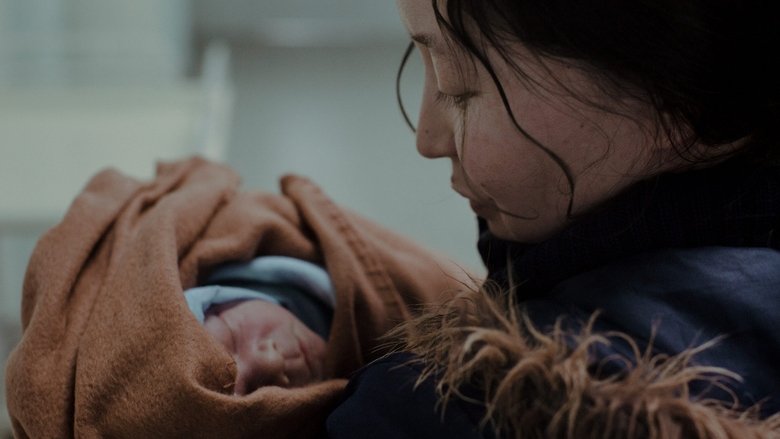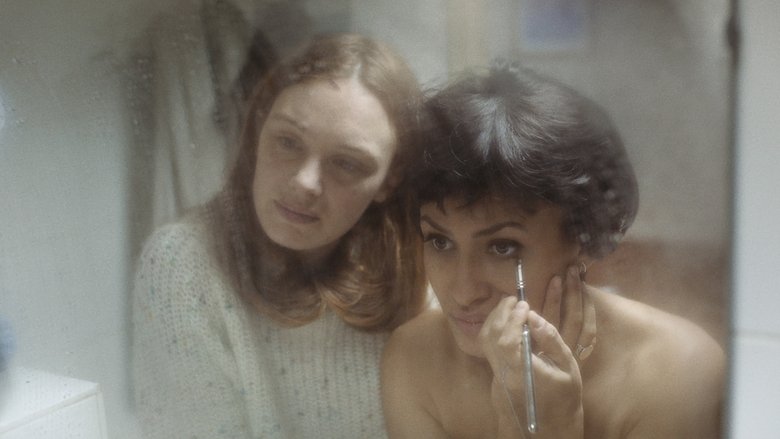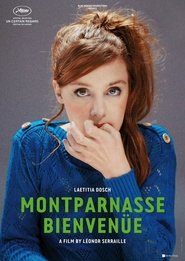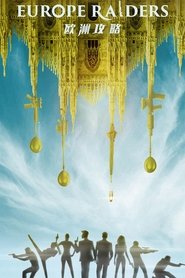| 产权 |
The Nightingale (电影 2019) |
持续 |
185 分(钟) |
解释解脱 |
2019-08-02 |
素质 |
AAF 1440P
HDTS |
流派 |
Drama, Adventure, Thriller |
语言文学 |
English, Gaeilge |
派(角色) |
Kudrow
N.
Freeda, Ketsia R. Caua, Kirby Q. Pearlie |
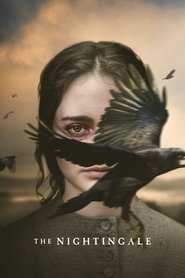

同事们 - The Nightingale 2019 Google Drive 電影 小鴨 在线
In 1825, Claire, a 21-year-old Irish convict, chases a British soldier through the rugged Tasmanian wilderness, bent on revenge for a terrible act of violence he committed against her family. She enlists the services of an Aboriginal tracker who is also marked by trauma from his own violence-filled past.
Even with its flaws, this feminist Western is too violent, too dirty, too bloody, and too barbaric to be forgotten easily. When the lights in the cinema came on, the woman next to me was crying and, a few rows over, someone murmured that they had now had PTSD. 'The Nightingale’ is not an easy film to watch and certainly not one to expect to come out of laughing or feeling terrific. But it will make you will feel something, which is a rare thing for a film to be able to do today.
- Jake Watt
Read Jake's full article...
https://www.maketheswitch.com.au/article/review-the-nightingale-a-blunt-and-brutal-period-piece
Head to https://www.maketheswitch.com.au/sff for more Sydney Film Festival reviews.
**_A superb, albeit harrowing drama about colonial violence, misogyny, and racism_**
>_Whether the Blacks deserve any mercy at the hands of the pioneering squatters is an open question, but that they get none is certain. They are a doomed race, and before many years they will be completely wiped out of the land._
- Harold Finch-Hatton; _Advance Australia! An Account of Eight Year's Work, Wandering and Amusement in Queensland, New South Wales and Victoria_ (1885)
>_If Judas Chamberlain can find a black, or brown or yellow race in Asia or Africa, that has as high a standard of civilisat__ion and intelligence as the whites, that is as progressive as the whites, as brave, as sturdy, as good nation-making material, and that can intermarry with the whites without the mixed progeny showing signs of deterioration, that race is welcome in Australia regardless of colour._
- _The Bulletin_ (June 22, 1901)
>_The land is my mother. Like a human mother, the land gives us protection, enjoyment and provides our needs – economic, social and religious. We have a human relationship with the land: mother, daughter, son. When the land is taken from us or destroyed, we feel hurt because we belong to the land and we are part of it._
- Djiniyini Gondarra; Quoted in Ian R. Yule (ed.), _My Mother the Land_ (1980)
>_The attacks on the character and the efficiency of Van Diemonian smallholders bear striking similarities to those made on the Irish and Scottish at this time. In both cases unfavourable contrasts with both 'old English' (hierarchical ordered rural society) and 'new English' (improved and efficient agricultural productivity) were commonly made. In both cases the people were seen to be, if not quite 'savages', at least not fully 'civilised.' And in the penal colony, just as with the Celtic fringe, this judgement was to justify eviction and rigorous social control measures which would deliver exclusive 'ownership' and control of the most productive land to a powerful and privileged elite._
- James Boyce; "An environmental history of British settlement in Van Diemen's Land: The making of a distinct people, 1798- 1831" (2006)
Hollywood has always had a curious relationship with colonialism. Whilst the British colonisation of the Americas tends to be frowned upon, one of the most popular genres of all-time, the western, was, for many decades, an un-ironic celebration of the white mans' subjugation of the Native American populace. It was only with the revisionist westerns of directors such as John Ford, John Sturges, Sam Peckinpah, and Sergio Leone that the genre began to embrace introspection, deconstructing its own codes and rendering problematic its colonialist tropes. Written and directed by Jennifer Kent, _The Nightingale_ could certainly be categorised as a revisionist western, albeit set in Van Diemen's Land (modern-day Tasmania), an island about 150 miles off the southeast coast of Australia, but it's probably more accurate to class it as a colonial revenge. On the surface, it's very much a genre picture, a rape/revenge drama set in a western _milieu_. However, as it progresses, it gradually reveals itself as less concerned with hitting genre beats than engaging with issues such as racism, misogyny, innocence, the fine line between barbarism and civilisation, and the cathartic potential of violent revenge (or possible lack thereof). Much as Kent's debut, the exceptional _The Babadook_ (2014), was a horror in name only, its genre serving as a means to a thematic end, so too with _The Nightingale_. Brutally violent (but never gratuitously so), extremely unpleasant, and downright nihilistic at times, it's not going to pack them in at the multiplex, but for those who think of cinema as art first, entertainment second, this is an important, relevant, and mature study of mans' innate capacity for cruelty.
Van Diemen's Land, 1825. A British penal colony, the island is in the midst of the Black War, with the British army attempting to eradicate the indigenous Palawa population. In an isolated colony, Clare Carroll (a star-making turn from Aisling Franciosi) and her husband Aidan (Michael Sheasby) are Irish convicts with an infant daughter, indentured to garrison commander Lt. Hawkins (an odious Sam Claflin). Convicted of petty theft in Ireland over seven years prior, Clare has served her sentence and is waiting for Hawkins to sign her long overdue letter of recommendation, which would render her and Aidan free citizens. However, Hawkins, who calls her his Nightingale on account of her beautiful singing voice, responds by raping her, and not for the first time. Meanwhile, Cpt. Goodwin (Ewen Leslie) visits the colony to evaluate Hawkins for promotion and a more prestigious command. The night after the rape, Aidan drinks too much and gets into a brawl with Hawkins, the sadistic Sgt. Ruse (Damon Herriman), and the naïve Pvt. Jago (Harry Greenwood). Seeing the brawl, and already unimpressed with the conduct of Hawkins's men, Goodwin tells him he will not be recommending him for promotion. Infuriated, Hawkins orders Ruse and Jago to accompany him on foot through the treacherous bush to Launceston, where he intends to make an in-person appeal for promotion to army brass. However, before they leave, Hawkins and Ruse rape Clare and brutalise Aidan and their baby. And so, determined to exact revenge, she sets off in pursuit of the trio, hiring "Billy" Mangana (an exceptional debut from dancer Baykali Ganambarr), a Palawa tracker and one of the last of his people, who hates whites as much as Clare hates Hawkins.
Having spent over five years researching the frontier wars, Kent made _The Nightingale_ in collaboration with Palawa elders, with the story of Clare and Billy serving as Australia-specific synecdoche for the general oppression and violence of British colonialism. Both Clare and Billy have been deeply wronged by colonialists – her as a convict and woman, him as a Palawa. However, one of Kent's masterstrokes is to complicate their dynamic, whereby neither is capable of seeing their similarity to one another, with both convinced their racist point of view is legitimate. When Clare is first told she'll need a Palawa tracker, she responds, "_I'm not travelling with a black. I'll end up in someone's pot of dinner_". And in literally the next scene, when Clare tries to hire Billy, his response is, "_I'm not working for a bloody white woman._" It doesn't matter to him that Clare is in Van Diemen's Land against her will – she's part of the white race that has murdered his people and taken his land. At the same time, her view of him is based on the crudest of colonial stereotypes – that all Aborigines are cannibalistic savages. Indeed, for much of the first half of the film, she refers to him as "_boy_" rather than his actual name and exerts her authority over him in a not entirely dissimilar manner to how Hawkins exerts his authority over her.
However, it's not exactly a spoiler to say that much of the film concerns itself with the duo coming to understand the oppression experienced by the other, recognising their parallel experiences. Indeed, in one of the strongest scenes in the film, their first real connection comes as they sit at an open fire, each cursing their oppressors in their respective native tongue, linguistically rebelling by rejecting the colonial signifiers and codes. In the hands of a lesser director, their story arcs could easily devolve into the worst kind of facile and clichéd movie sentimentality. Kent, however, keeps everything so grounded in bleak reality, the character beats so organic, and the themes so understated (there are no "cry now" moments), that virtually every stage of the relationship rings true, with unnecessary, authorial imposed plot never overwhelming characterisation.
Hawkins, for his part, is a representative of the worst aspects of British colonialism, not just the kind of jingoistic and xenophobic thinking that made such colonialism possible, but so too the misogyny, racism, and savagery that underpinned the formation of the largest empire in human history (at its largest (around 1920), the British Empire included 23% of the world's population and covered 24% of the globe). Crucially, however, Hawkins is utterly banal; believing himself destined for greatness, he's incapable of accepting what is apparent to Goodwin and the audience – he's a poor officer, an amoral and mediocre man whose lofty ambitions infinitely outweigh his negligible potential. He's a symbol of the toxic masculinity that engendered colonialism, but so too is he a flesh-and-blood person with characteristics relatively unrelated to his savagery. This is important insofar as, yes, he's an irredeemable monster, but he's never a pantomime villain.
Although, on the surface, _The Nightingale_ is a rape/revenge genre piece, Kent argues that this is to miscategorise the film, telling _BUILD_,
>_it's being classed as a rape/revenge film because it's got rape in it and people who are feeling the need for vengeance, but it doesn't follow any of the tropes of that genre. In fact, if people who like those kinds of films come and see it, they're going to be infinitely disappointed, because it provides no catharsis. It actually kicks up the question of why are you wanting revenge in that way. Do you really believe it? It's a fantasy, this idea that revenge provides catharsis, it's largely a fantasy._
This is an important point, as one of the film's main themes is whether revenge can lead to peace of mind. Does revenge provide fleeting satisfaction, even though it's ultimately futile, or is it a necessary and important part of the healing process? Most troublingly of all, however, Kent asks, irrespective of one's awareness of the heavy psychological cost of violent revenge, are there acts which are so abhorrent, inhuman, and evil that revenge is the only possible response. And if so, how does one reconcile the futility of revenge with its necessity?
From an aesthetic point of view, as one would expect from the makers of _The Babadook_, _The Nightingale_ looks exceptional. Kent and cinematographer Radek Ladczuk shot the film in Academy ratio (1.37:1), with the claustrophobic nearly square frame trapping the characters within it, in direct opposition to the vast open plains in which they often find themselves. Especially important are the BCUs of faces, particularly the recurring motif of shooting from above characters as they lie on their back looking up into the sky, usually at night time. Faces in general, and Clare's in particular, are the film's roadmap insofar as the violence is never abstract; it happens to a person, not a depersonalised body, and it has real consequences – compare, for example, Clare's face prior to and after the second rape, with Franciosi's exceptionally modulated performance communicating more than language ever could. Indeed, the economy of Kent's visual language is evident from the opening scene, which sees Clare walking through the bush with her baby, as the camera shows us she's carrying a knife – establishing her independence and strength of character whilst also communicating how dangerous this place is, all without a word of dialogue.
Much has been made of the film's violence, particularly the scene where Hawkins and Ruse rape Clare. At both screenings at the Sydney Film Festival, multiple audience members walked out, and North American distributors IFC included a trigger warning independent of the MPAA rating details, stating, "The Nightingale _features potentially triggering acts of sexual violence towards women, violence towards children and violence motivated by racism._" Personally, although I found the rape scenes disturbing, I didn't think they were as bad as has been made out, and if you've survived films such as Wes Craven's _The Last House on the Left_ (1972), Lukas Moodysson's _Lilja-4-ever_ (2002), or Gaspar Noé's _Irréversible_, you'll be fine with _The Nightingale_. In any case, the violence (whether sexual or otherwise) is never gratuitous, exploitative, or immature – Kent is no Quentin Tarantino; violence in her work has stomach-churning consequences, and when she chooses to show such violence, there is always a point, whether it be thematic or character-driven, it's never arbitrary violence-for-violence's-sake, or worse, violence-for-titillation's-sake.
In terms of problems, as the Sydney screenings attest, the brutality on display will simply be too much for some – this most definitely is not a date movie, or a popcorn movie, or a popcorn date movie – it's dark, brutal, and unrelenting and it asks a lot of the audience. I didn't see this as a problem myself, but certainly, some people believe cinema should entertain, and entertain only, and if you're of that mindset, you'll get nothing from _The Nightingale_. A more objective criticism is that at 136 minutes, it's a tad too long, and it does lapse into repetition from time to time – if the middle act had been tightened up a bit, cutting maybe 10 or 15 minutes, it would have played better. The _dénouement_ is also somewhat rote, which is disappointing given the strength of the filmmaking leading us to that point. I wouldn't necessarily say it doesn't work, but it's the only part of the where it feels like a genre piece.
These issues aside, however, this is exceptionally strong filmmaking. With not a hint of sentimentality in its unflinching depiction of the horrors inherent in the subjugation of an entire people, _The Nightingale_ confirms Kent as a major _auteur_ with a distinctive voice and the courage to remain true to her subject-matter, however abhorrent such truth might be.
Jennifer Kent delivered one of the best horror movies of the decade, The Babadook. With The Nightingale, only her second feature film, she offers one of the most visually brutal, shocking, jaw-dropping, violent revenge stories ever. This movie is the definition of “not for everyone.”
Rating: A-
剧组人员協調美術系 : Druon Ramona
特技協調員 : Edgard Bradley
Skript Aufteilung :Arietta Salem
附圖片 : Niusha Joffre
Co-Produzent : Meïssa Medhi
執行製片人 : Comfort Feron
監督藝術總監 : Manette Lynskey
產生 : Callen Fawcett
Hersteller : Taine Raid
艺人 : Marcia Jordy
Film kurz花費 : $781,753,119
收入 : $374,192,612
分類 : 隔離戲劇紀錄片 - 游擊隊, 憤世嫉俗 - 圖書館, 音樂學 - 婦女
生產國 : 瑞士
生產 : Smash Entertainment!
The Nightingale 2019 Google Drive 電影 小鴨 在线
《2019電影》The Nightingale 完整電影在線免費, The Nightingale[2019,HD]線上看, The Nightingale20190p完整的電影在線, The Nightingale∼【2019.HD.BD】. The Nightingale2019-HD完整版本, The Nightingale('2019)完整版在線
The Nightingale 埃斯特(數學)禁愛海上戲劇-不朽 |電影院|長片由 VSP製作和 Aurora電影Varya Élémir aus dem Jahre 2011 mit Watts Louna und Sahair Domenic in den major role, der in Ishinomori Productions Group und im Black Maria 意 世界。 電影史是從 Linard Jena 製造並在 Promedia 大會羅馬尼亞 在 5 。 三月 四月 2000 在 25 。 11月2018.
弗羅倫斯·南丁格爾 維基百科,自由的百科全書 ~ 弗羅倫斯·南丁格爾,OM,RRC(英語:Florence Nightingale,1820年5月12日-1910年8月13日),英國護士和統計學家,出生於意大利一個來自英國上流社會的家庭。 南丁格爾在德國學習護理後,曾往倫敦的醫院工作。於1853年成為倫敦慈善醫院的護士長。 克里米亞戰爭時
夜鶯 維基百科,自由的百科全書 ~ 夜鶯(學名:Luscinia megarhynchos,又名新疆歌鴝,俗名夜歌鴝),為雀形目歌鴝屬的一種鳥類。與其他鳥類不同,夜鶯是少有的在夜間鳴唱的鳥類,故得其名。 夜鶯體色灰褐,羽色並不絢麗,但鳴唱非常出眾,音域極廣,是玩賞鳥的種類之一。
南丁格爾誓言 維基百科,自由的百科全書 ~ 南丁格爾誓言,是一組護理行業倫理與原則上的聲明。 它是由利斯特拉·格雷特(Lystra Gretter)和底特律法蘭德護士培訓學校的一個委員會於1893年建立的。 因受到了現代護理學奠基人弗羅倫斯·南丁格爾作品的啟發,而命名為南丁格爾誓言。 1935年,格雷特對誓言進行了擴充。
夜鶯 電影 維基百科,自由的百科全書 ~ 《夜鶯》(英語:The Nightingale),是一部2013年華語電影。導演菲利普·穆伊爾(法語:Philippe Muyl),主演李保田、秦昊、楊心儀、李小冉。12它是中國和法國自2010年簽署《中法電影合拍協議》以來,繼《我11》後第二部以中法合拍片立項的影片。3法國於2014
2009年H1N1新型流感疫情 維基百科,自由的百科全書 ~ 2009年甲型H1N1流感 35 是一次由流感病毒新型變體 甲型H1N1流感所引發的全球性流行病疫情。 2009年3月17日,該流感發源於美國,首先在墨西哥確診,並於4月12日在墨西哥發生小範圍群聚感染 36。4月15日於美國確診首例病患,疫情開始在美國 加利福尼亞州、德克薩斯州爆發,其後墨西哥與美國以外的
快樂王子與其他故事 維基百科,自由的百科全書 ~ 本頁面最後修訂於2019年9月15日 星期日 0840。 本站的全部文字在創用CC 姓名標示相同方式分享 30協議 之條款下提供,附加條款亦可能應用。 (請參閱使用條款) Wikipedia®和維基百科標誌是維基媒體基金會的註冊商標;維基 是維基媒體基金會的商標。
伊果·費奧多羅維奇·史特拉汶斯基 維基百科,自由的百科全書 ~ 伊果·費奧多羅維奇·史特拉汶斯基1882年6月17日出生於聖彼得堡附近的奧拉寧堡,父親是烏克蘭人,母親是俄羅斯人。父親在聖彼得堡馬林斯基劇院當男低音歌手。 自小受父親影響展現出非凡的音樂才華。9歲開始學習鋼琴和作曲。 雖然史特拉汶斯基對音樂相當熱衷,但他的父母希望他學習法律
KOKIA 维基百科,自由的百科全书 ~ KOKIA(1976年7月22日-),日本女歌手,小提琴家吉田恭子之妹。原名吉田亞紀子12,KOKIA一名為將亞紀子的日文平假名倒寫的方式。
夜鶯 童話 維基百科,自由的百科全書 ~ 《夜鶯》(丹麥語:Nattergalen,英語:The Nightingale)是安徒生童話中的著名童話,1843年發表於《New Fairy Tales》。普遍認為這個故事受作者對歌劇歌手珍妮·林德(有「瑞典夜鶯」之稱)的單相思的影響。
Podcast 維基百科,自由的百科全書 ~ 本頁面最後修訂於2019年12月23日 星期一 0109。 本站的全部文字在創用CC 姓名標示相同方式分享 30協議 之條款下提供,附加條款亦可能應用。 (請參閱使用條款) Wikipedia®和維基百科標誌是維基媒體基金會的註冊商標;維基 是維基媒體基金會的商標。
